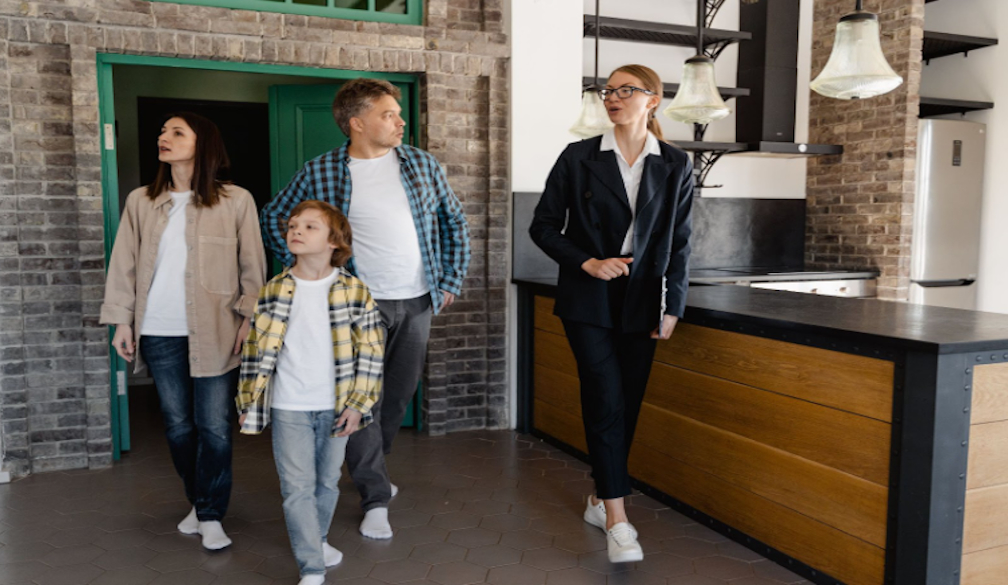Guide to buying your first home

Buying your first home is a significant milestone, and it's crucial to approach the process with careful consideration and thorough research. The real estate market can be complex, and making informed decisions is key to finding a home that suits your needs, lifestyle, and budget. Here are some essential considerations for first-time homebuyers:
Define your budget
Before starting your home search, it's vital to establish a realistic budget. Consider factors like your income, monthly expenses, and potential future financial changes. Using an online calculator can help you determine how much you can afford to spend on a home, taking into account your down payment, interest rate, and mortgage term. Keep in mind that owning a home also comes with additional costs like property taxes and maintenance fees.
Get pre-approved for a mortgage
Speak with lenders to get pre-approved for a mortgage before you start house hunting. This will give you a clear understanding of the loan amount you qualify for and help narrow down your options. It also demonstrates to sellers that you are a serious and qualified buyer. If you're self-employed or have a non-traditional income, you may need to provide additional documentation for your mortgage application.
Research the market and location
Take the time to research the real estate market in your desired location. Consider factors like average home prices, neighbourhood amenities, and potential growth opportunities. This will help you make an informed decision and ensure that you're investing in a property with strong resale value. If you're unfamiliar with the area, it's also a good idea to visit the neighbourhood at different times of the day to get a feel for the area and its community.
Choose the right location
The location of your home is as important as the property itself. Consider factors that matter to you, such as proximity to your workplace, schools, public transportation, and amenities like grocery stores and parks. Research the neighbourhood's safety, future development plans, and overall vibe to ensure it aligns with your preferences and lifestyle.
Property type and size
Determine the type of property that suits your needs, whether it's a family home, apartment, townhouse, or something else. Consider the size of the property, number of bedrooms and bathrooms, and any additional features that are important to you, such as a backyard, garage, or a specific layout. It's also a good idea to consider how things may change in the future, such as whether you're planning on having a family or if you'll need space for a home office.
Future resale value
While it's natural to be excited about your first home, it's essential to think about its potential resale value. Markets go up and down and no one can predict exactly what they'll do, but by doing your own research, you can get an idea of how the area has performed in recent years. Look for properties in areas with a history of appreciation and consider the long-term market trends. A property with good resale value can be an excellent investment, providing you with more flexibility in the future.
Home inspection
Always conduct a thorough home inspection before finalising any purchase. This includes getting a building inspection to check for any structural defects and a pest inspection to look for termite or insect infestations. A professional inspection can uncover hidden issues that may not be immediately apparent. It's also a good idea to do your own walk-through of the property, paying attention to any potential issues such as leaks, cracks, or outdated features. This step can save you from unexpected expenses down the line and give you negotiating power if repairs are needed.
Be aware of homeownership costs
Beyond the mortgage, factor in additional homeownership costs such as property rates, utilities, and maintenance expenses. Understanding the full cost of owning a home will help you avoid financial surprises and ensure you can comfortably manage your new responsibilities. It's also important to consider future expenses such as renovations or upgrades and budget for them accordingly.
Negotiation skills
Develop effective negotiation skills or work with a real estate agent who can negotiate on your behalf. Whether it's the purchase price, closing costs, or repairs, being able to negotiate can make a significant difference in the overall cost of your home. With the right negotiation skills, you can potentially save thousands of dollars on your purchase.
Legal and regulatory compliance
Ensure that you fully understand the legal aspects of buying a home, including contracts, disclosures, and local regulations. Work with professionals such as real estate agents and solicitors to navigate the legal aspects of the homebuying process. A solicitor should assist with the title search, transfer of ownership, and other legal aspects to ensure a smooth and compliant transaction.
Buying your first home is an exciting process, but it can also have a few complexities. Taking the time to carefully consider these factors and seeking guidance from real estate professionals will help ensure a smoother homebuying experience. With careful planning and research, you have a good shot at finding a home that not only meets your immediate needs but that may also serve as a sound investment for your future.




